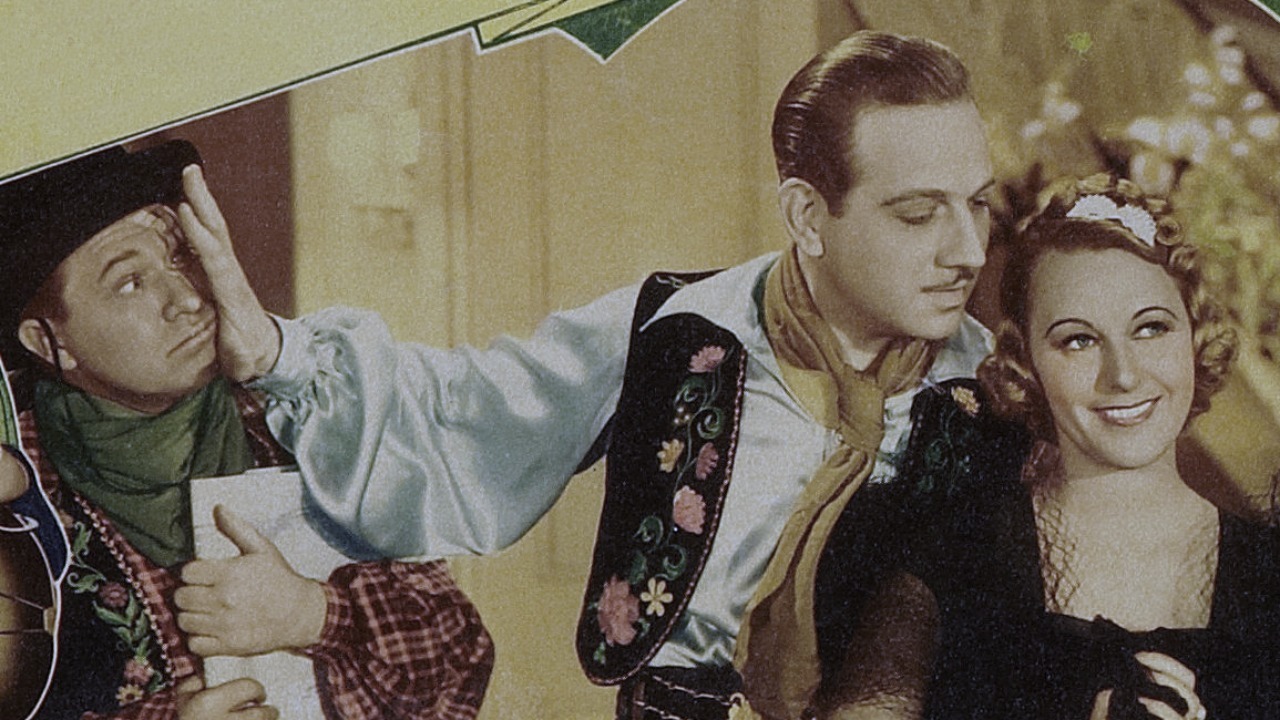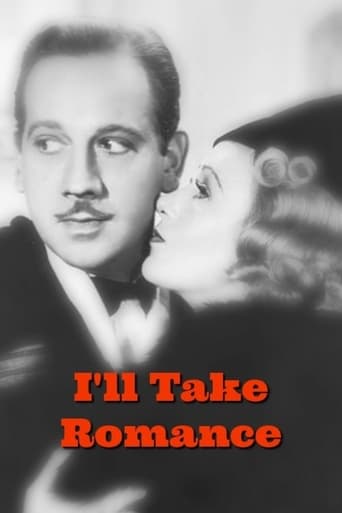

A Masterpiece!
... View MoreThis is a must-see and one of the best documentaries - and films - of this year.
... View MoreIt is both painfully honest and laugh-out-loud funny at the same time.
... View MoreEach character in this movie — down to the smallest one — is an individual rather than a type, prone to spontaneous changes of mood and sometimes amusing outbursts of pettiness or ill humor.
... View MoreI have only seen a couple of brief excerpts. The performance of the first act from Puccini's Madame Butterfly' was so amazing that I have been searching for the movie ever since. I imagine it is impossible to find. Over the years I have seen and heard many performances of "Butterfly" but there was something magical about this performance despite the grainy quality of the film.
... View MoreBack in the day, Grace Moore was a huge opera star. Somehow, the studios thought they could translate this into making her a movie star but after less than a dozen films, she just didn't make much traction in the film industry. Her acting wasn't bad but she didn't exactly have a movie star look and her singing style was something most viewers wouldn't have enjoyed...even more so today. Fortunately, Columbia paired Moore with Melvyn Douglas, an actor who had an easy-going acting style and brought out the most in this otherwise limp film.The film hampers itself by creating a pretty dreadful conflict...one that makes viewers immediately dislike Moore's character. Apparently, this singing diva has a contract to sing in South America but is planning on just ditching it in favor of singing in Paris. I don't know about you, but anyone totally ignoring a contract and the impact breaking it would have on others makes me pretty angry at her. Douglas plays a guy hired to try to get her to South America and eventually he tries to use romance to woo her that way. Unfortunately, every time this film starts to get interesting, Moore breaks into song....and most of the songs are operatic. I was watching the film at home and whenever she sang, I did chores! Too bad, as it's otherwise an agreeable little film.
... View MoreIf you only know Grace Moore from *One Night of Love*, you should definitely check out this movie. It's much better.First, Moore is much more at ease acting in front of the camera. In ONOL she often delivered her lines in a stilted way. Here, she is much more natural, and really seems to be having fun.Second, and even though they do repeat it rather often, this movie does have a dynamite title song, which bears repeated listening.Third, Moore is surrounded by a uniformly fine cast, starting with Melvyn Douglas and including Stu Erwin, Helen Westley, and Margaret Hamilton (yes, the Wicked Witch of the West, two years before TWOO), all in top form.The weak point, frankly, is the three fully-staged operatic scenes. The first and the third, from Traviata Act I and the Love Duet from the end of the first act of Madama Butterfly, are well-performed. (The middle one, the Act III finale from Martha, is not as well done.) The problem is that they just sit there, and are not in any way integrated into the plot. If you think of a movie like Moonstruck, which does such a magnificent job of incorporating various scenes from La Boheme into its plot, you have some idea of what could have been done. Instead, the action just stops, and the audience is asked to sit back, watch, and listen, not even as if they were at the opera, because we are given no idea whatsoever of what is going on in those three scenes. If scenes had been chosen with situations similar to what was going on in the movie, and if the parallels had been indicated, the operatic scenes wouldn't have acted as dead weights in what is otherwise a nicely paced romantic comedy. (There is some effort to incorporate the scene from Manon into the action, but not much.) Still, don't let those three scenes keep you away. Moore comes off as vivacious and fun-loving, Douglas is his usual easy-going and agreeable self. The result is an enjoyable 90 or so minutes.---------------------I watched this again on TCM. The cast is really very good, a group of first-rate comedians. It's a shame the material isn't up to the level of their talent. Every now and then it seems about to take off and become a good comedy, but then it falls flat again.I still feel that the operatic numbers slow things down. Only the Butterfly duet is really well done. On the other hand, Moore does a great job with the few pop numbers she is given. She should have sung more popular numbers and cut back on the opera.
... View MoreGrace Moore and Melvyn Douglas star in "I'll Take Romance," a 1937 musical film that has good support from Stuart Erwin and Margaret Hamilton.Moore plays Elsa Terry, an opera star who has two engagements at the same time, one in Paris and one in Buenos Aires. Paris is the more lucrative offer, so she decides to blow off Buenos Aires. An agent (Douglas) has the job of getting her down South America way, so he romances her. They both fall in love for real.This was Grace Moore's second-last film. She had a lovely voice, fuller than Jeannette MacDonald's. Unfortunately, the way female singers were taught in those days gave them a fluttery, back-sounding quality at the top and, due to not a lot of mixing of middle and chest voice, their middle voices were not as rich as they could have been. To think that a light, lyric voice like either MacDonald's or Moore's would attempt Tosca today is preposterous - yet both these women, with fragile instruments, actually did the role. In this film, Moore also takes on Madame Butterfly, another role that would never go to her today. Moore was a famous Mimi, a straight lyric soprano role, in La Boheme. A good deal of her singing in this film is quite beautiful.The highlight of "I'll Take Romance" is the beautiful title song performed by Moore. She also sings from Manon, Traviata, and Martha, Martha being an opera no longer in standard repertoire. The character is singing at the old Met. Impressively, the segments from Traviata and Martha are fully staged and costumed and done without cuts. The American tenor Frank Forrest sings with Moore in Butterfly, and he has a beautiful voice.This is supposed to be a screwball comedy. Moore was an easy, natural actress with no particular gift for comedy or screwball, so it doesn't quite come off. Melvyn Douglas sails through the film as he always did in these light leading man roles, and no one ever realized what an absolutely magnificent actor he was until the 1960s. Stuart Erwin and Margaret Hamilton are both very funny.The extremely popular Moore had just finished a concert in Demark before 4000 people and was en route to Sweden when the plane crashed and killed her. She was 49 and had been out of films for eight years and concentrating on concert and USO work. She helped to popularize opera in the U.S. and paved the way for later stars like Mario Lanza and Kathryn Grayson.
... View More